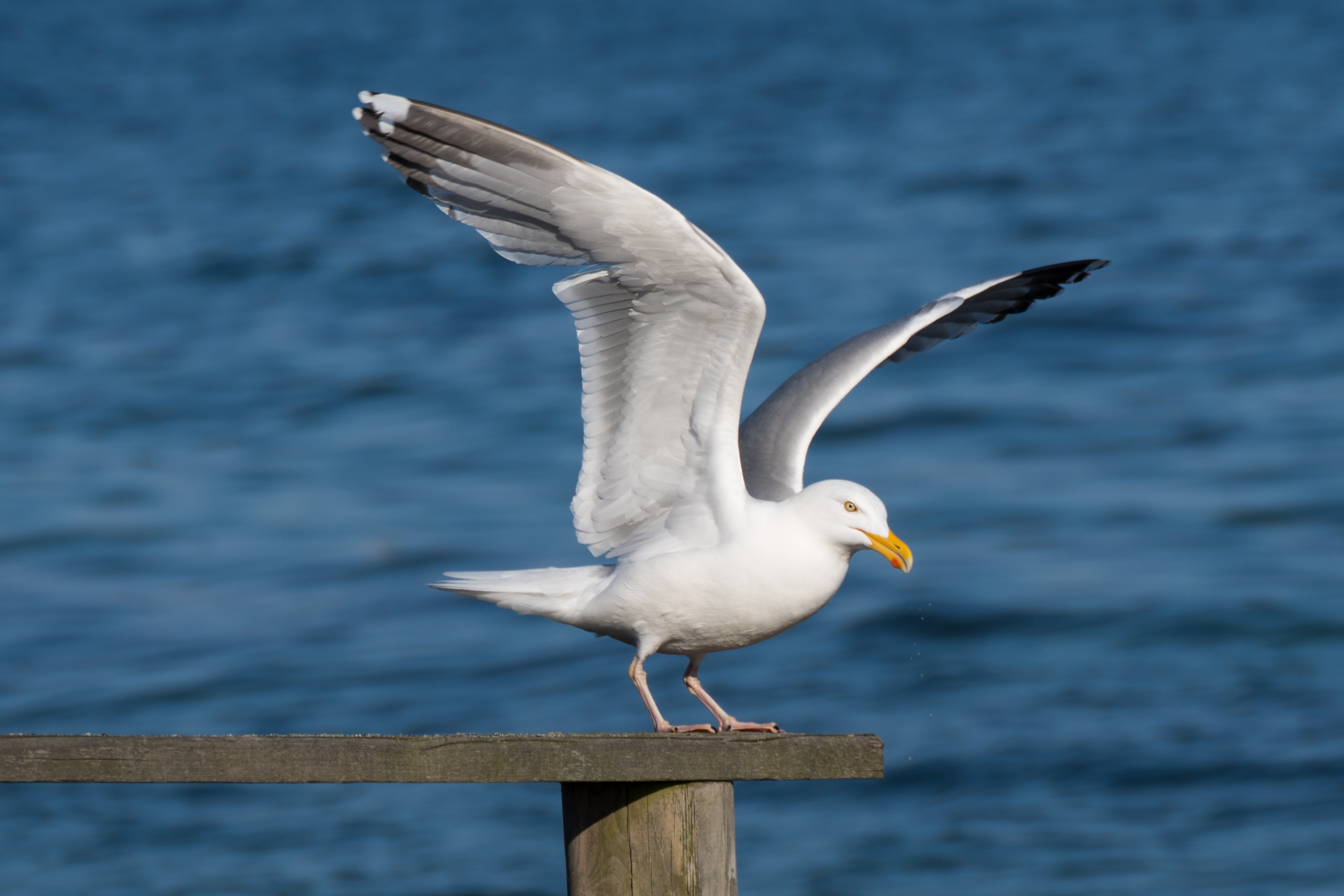Seagull Control
How to Get Rid of Seagulls

Keep Gulls off your property and boats with Bird B Gone's Gull products. They are easy to install, effective and affordable.
Gulls continue to be a major problem for property owners nationwide. They cause thousands of dollars each year in cleanup and repair costs. Altering gull behavior continues to be more effective than lethal or harmful means. Identifying and altering/removing the “gull-attractive” features of your property, combined with professional grade gull deterrents, comprise the most effective way to solve your gull problem.
Information About Seagulls
Seagulls or gulls can be found all over the planet. Besides islands and coastal areas, some species inhabit deserts and locales far from the water.
- The smallest seagulls can reach 11.5 inches in length and weigh just 4.2 ounces.
- The largest can be 30 inches long and weigh 3.8 pounds.
Most gulls have white or grey plumage. Unlike many animals, gulls can drink salt water. They will raid garbage dumps, ballparks, and fisheries for leftovers. They will also eat seeds, insects, earthworms, small rodents, reptiles and amphibians. In addition to providing an almost limitless supply of food, marinas and ballparks provide ideal shelter for gulls.

Why Seagull Control
Gulls are aggressive scavengers and when they gather around boats, docks and any type of outdoor eatery, they will brazenly move in and snatch food scraps off tables. They will hover around benches, awnings and fixed umbrellas and dive in for a quick meal when patrons turn their backs on their food. Gulls create quite a din during their nesting season, typically April to July. They'll gather in huge flocks and leave pounds of droppings in their wake.
- These droppings contain uric acid, which, left to gather, can eat into paint, metal, wood and plastic.
- Gull droppings also pose a health risk, since they can harbor a variety of diseases.
Gulls often gather on the masts of boats and will nest in unattended vessels, leaving droppings and other rotting offal. The stench can be overwhelming. And clean-ups can be a major chore for boat owners. Likewise, restaurant owners must clean up gull waste or risk a shut down by health inspectors. Care must be exercised, even when cleaning dried gull droppings, as the dust can still release airborne bacteria that can be inhaled and cause respiratory problems.
How to Get Rid of Seagulls
There are many humane options for deterring gulls from landing or nesting on your property. It’s important to thoroughly clean up any bird droppings or nesting materials before any deterrent products are installed (gulls are attracted to the scent of their droppings and nests).
Seagull Deterrent Products
- To prevent gulls from landing on high perches like rooftops, parapet walls, boat masts and light posts, install Bird Spikes, Bird Spiders, Repeller 360° or Solar Bird Repellers.
- Gulls use hard surfaces such as roofs to deposit and break open muscles. The Bird Chase Super Sonic, a weatherproof sound deterrent, is ideal for deterring Seagulls from large open spaces.
Remove Food Sources
Any open food source will act like a magnet for gulls. These include leftover food on the floor and tables of open-air eateries. Gulls are also drawn to the leftover scraps at ballparks. Regardless of venue, it’s important to tightly close all trash containers.
Scare Tactics
Gulls, like most birds, are acutely aware of their surroundings. Appealing to their sense of sight and sound can effectively scare gulls away from your property. Products like the Bird Chase Super Sonic or Reflective Bird Diverters create zones of alarm and distraction to deter gulls.
Ask for Help - Professional Installer
If you don’t have the time, resources or expertise to solve your gull problem, wildlife and pest control companies offer bird control as a service. Bird B Gone can help find a local Authorized Installer who can install bird control products and offer other services such as clean-up and humane trap and gull removal.
Don't wait for the seagulls to take over your home or business, Ask Bird B Gone for Help!



